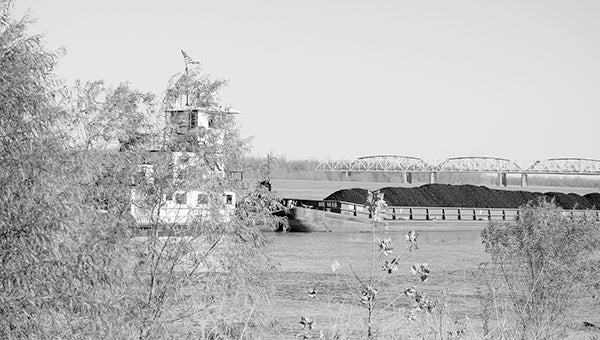Flooding in January created navigation havoc for river barge traffic
Published 9:55 am Monday, December 26, 2016
The year 2015 ended and 2016 began with a familiar threat to residents in Vicksburg and Warren County as heavy rains in the Midwest brought the threat of flooding to cities and towns along the Mississippi River.
The high water, which reached a height of 50 feet at Vicksburg and flooded low-lying areas of the city and county, brought another hazard as towboat captains moving tows downriver to New Orleans and other destinations had to fight a fast strong current as they made their way south.
The combination of high water and swift currents made navigating the Mississippi around Vicksburg hazardous and were responsible for incidents where southbound tows struck the Old Highway 80 bridge on four occasions, forcing the U.S. Coast Guard to close the river:
• Jan. 12, the motor vessel Ron W. Callegan, operated by American Commercial Barge Lines hit pier four on the old U.S. 80 Bridge.
Lt. Brian Porter of the U.S. Coast Guard public affairs office said out of the 22 coal carrying barges being pulled by the tug, nine broke free and two sunk. Two other barges that suffered heavy damage were helped to the bank of the river to prevent them from completely sinking, bridge superintendent Herman Smith said.
• Jan. 13, the motor vessel Inez Andrea, owned by American River Transportation Co. of Chicago, struck one of the bridge piers on the Mississippi. Two barges broke from the tow after impact, and a barge carrying grain sunk after the accident.
• Jan 14, a 25-barge tow carrying grain pushed by the motor vessel Robert D. Byrd owned by ACBL River Operations struck the bridge. The river, however, remained open to traffic a Coast Guard spokesman said.
Bridge superintendent Herman Smith said the tow hit the pier.
“It just scraped the bridge and nothing sunk,” he said. “We went down and looked at the pier and you can barely see where it hit.”
• Jan. 20 the motor vessel Wally Roller operated by American Commercial Barge Lines struck the bridge, causing all six barges in the tow to separate on impact. Three of the barges contained grain, two had been carrying molasses, and a flagged barge had carried styrene, a hazardous material. None of the barges sank and there was no release of hazardous materials.
All six barges were recovered south of the bridge by Ergon Marine service boats.
The accident briefly closed the bridge.
At one point, the bridge accidents coupled with an accident in Natchez, where 76,000 gallons of oil were spilled after a tow struck the Natchez-Vidalia Bridge, shut the river down to all north and south traffic for several days, stacking boats and barges up and down the river.
“If you come look at the river and the tows that are holding up north of the bridge now, it looks like New York Harbor,” said Austin Golding, Golding Barge marketing, sales and customer service manager. “You shut this thing down for a few days, and there will be tows bottled north and south of Vicksburg 50 miles. Not good.”
“By shutting the bridges down, we find ourselves just waiting on one side or the other. We have goods that need to get to market, but obviously, everyone wants to be as safe as possible,” said Patrick Smith, president of Yazoo River Towing.
“The Coast Guard isn’t doing anything to try to hurt or undermine our efforts. They’re tasked with making everything as safe as possible, and until they deem that it is safe, they’re going to hold us up.”






